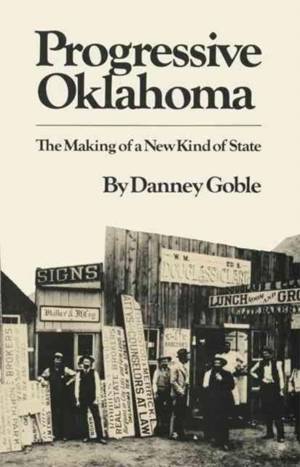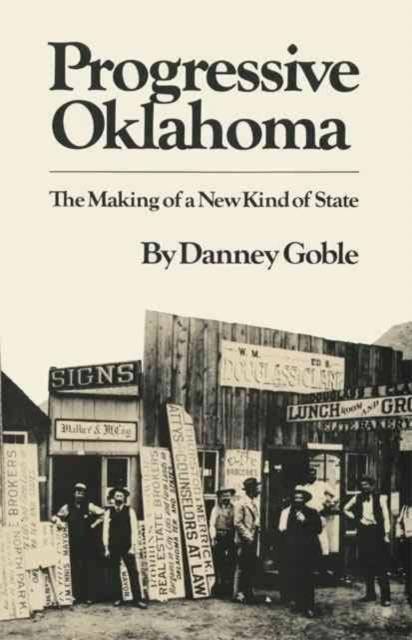
- Retrait gratuit dans votre magasin Club
- 7.000.000 titres dans notre catalogue
- Payer en toute sécurité
- Toujours un magasin près de chez vous
- Retrait gratuit dans votre magasin Club
- 7.000.000 titres dans notre catalogue
- Payer en toute sécurité
- Toujours un magasin près de chez vous
37,45 €
+ 74 points
Description
Progressive Oklahoma traces Oklahoma's rapid evolution from pioneer territory to statehood under a model Progressive constitution. Author Danney Goble reasons that the Progressive movement grew as a reaction to an exaggerated species of Gilded Age social values--the notion that an expanding marketplace and unfettered individualism would properly regulate progress. Near the end of the territorial era, that notion was challenged: commercial farmers and trade unionists saw a need to control the market through collective effort, and the sudden appearance of new corporate powers convinced many that the invisible hand of the marketplace had become palsied. After years of territorial setbacks, Oklahoma Democrats readily embraced the Progressive agenda and swept the 1906 constitutional convention elections. They went on to produce for their state a constitution that incorporated such landmark Progressive features as the initiative and referendum, strict corporate regulation, sweeping tax reform, a battery of social justice measures, and provisions for state-owned enterprises. Goble is keenly aware that the Oklahoma experience was closely related to broader changes that shaped the nation at the turn of the century. Progressive Oklahoma examines the elemental changes that transformed Indian Territory into a new kind of state, and its inhabitants into Oklahomans--and modern Americans.
Spécifications
Parties prenantes
- Auteur(s) :
- Editeur:
Contenu
- Nombre de pages :
- 294
- Langue:
- Anglais
Caractéristiques
- EAN:
- 9780806148618
- Date de parution :
- 15-03-80
- Format:
- Livre broché
- Format numérique:
- Trade paperback (VS)
- Dimensions :
- 140 mm x 216 mm
- Poids :
- 371 g







